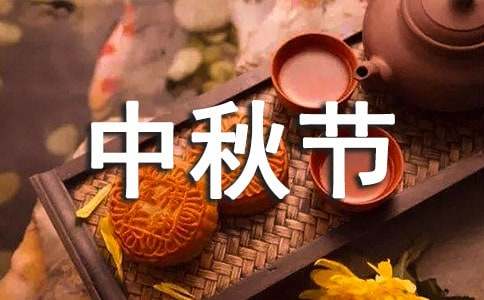- 相關推薦
英語作文過中秋節
中秋節有許多習俗,比如吃月餅,賞月,那么關于英語作文過中秋節需要怎么寫呢?以下是小編為大家搜集整理提供到的英語作文過中秋節內容,希望對您有所幫助。歡迎閱讀參考學習!

英語作文過中秋節1
The Mid-Autumn festival is our traditional festival in the lunar calendar August 15, is China's second largest after Spring Festival traditional festival.
August 15 just in the middle of the autumn, the so called Mid-Autumn festival. According to the record of history, the word "Mid-Autumn festival" first appeared in "rites". To the wei and jin dynasty, until the early years of the tang dynasty, Mid-Autumn festival became fixed festivals. The prevalence of Mid-Autumn festival began in song dynasty, to Ming and qing dynasties, along with New Year's day, to become one of the major festivals in China.
Mid-Autumn festival on this day, the moon in the sky is bright and special big special circle, so the day was looking at is a good day for the reunion, also was named the most human, a festival of poetry. Some people say that every festive holiday times. Mid-Autumn festival this missing, of course, could be more deeply, especially the moon hanging in the moment, don't forget, let the truth a greeting CARDS to the distance of your family and friends blessing reunion night, the moon is high. Therefore, also known as the August 15 for "the mid autumn festival". Through the ages, people often use "full moon", "the month lacks" to describe the "." Wandering away they, especially on deep feeling. The tang dynasty poet li bai's "look at the bright moon, bowed their heads and remembering home." Du fu's "from this white night, the month is like home." Song dynasty poet wang anshi "spring breeze has green river, south when the moon as I also." Such as poem, song is eternal.
Now the Mid-Autumn festival on this day, the people of the whole country can also enjoy a day of holiday, family reunion!
中秋節是我國的傳統佳節在農歷八月十五日,是我國僅次于春節的第二大傳統節日。
八月十五恰在秋季的中間,所以稱中秋節。根據史籍的記載,“中秋”一詞最早出現在《周禮》一書中。到魏晉時,直到唐朝初年,中秋節才成為固定的節日。中秋節的盛行始于宋朝,至明清時,已與元旦齊名,成為我國的主要節日之一。
中秋之這一天,天上的圓月分外明亮特別的大特別的圓,所以這一天被看著是團圓的大好日子,也被人們喻為最有人情味、最詩情畫意的一個節日。有人說,每逢佳節倍思親。中秋節這一份思念當然會更深切,尤其是一輪明月高高掛的時刻,不要忘了,讓真情賀卡給遠方的.親人朋友一個問候祝福團圓之夜,明月高懸。因此,又稱八月十五為“團圓節”。古往今來,人們常用“月圓”、“月缺”來形容“悲歡離合。”客居他們的游子,更是以月寄托深情。唐代詩人李白的“ 舉頭望明月,低頭思故鄉。”杜甫的“露從夜今白,月是故鄉明。”宋代詩人王安石的“春風有綠江南岸,明月何時照我還。”等詩句,都是千古絕唱。
現在中秋節這一天,全國人民還可以享受一天的假期,合家團圓呢!
英語作文過中秋節2
The Mid-Autumn festival has many customs, such as eating mooncakes, but do you know the origin of the Mid-Autumn festival?
Legend before hou yi to the mountains to find friends to visit, to see the queen passing by here, is to the west to a pack of undead medicine. Hou yi came home to sow wife chang e, was temporarily handed the elixir to chang e. But this is a good disciple loose Mongolia saw, loose Mongolia is the salt of the earth.
Once hou yi to go hunting with a disciple, loose Mongolia pretended to be sick, stayed. Hou yi, loose Mongolia took their forced chang e to hand over medicine, nod to break into the room, the goddess of the moon there is no way, she suddenly brainwave, take medicine, gulps it down. Because of the goddess of the moon in the heart of caring husband, so become a fairy chang e flew to the nearest the moon.
Hou yi returned, he found the goddess of the moon in the sky and said to him: "tonight the moon will be round, what do you do in the evening in the northeast corner of room, a piece of dough until midnight we couple reunion." Hou yi do as the goddess of the moon said, in the middle of the night, the couple finally reunited. The goddess of the moon when two people part of hou yi said: "August 15 this day of year, you have to make the dough, until midnight to walk again after I come back." Come back every year, make the dough, waiting for the goddess of the moon. Later, this custom was inherited, developed into now the Mid-Autumn festival, the Mid-Autumn festival to eat moon cakes also became a custom.
I really like this myth, also loved the Mid-Autumn festival.
中秋節有許多習俗,比如吃月餅,但是你知道中秋節的由來嗎?
傳說以前后羿到山里去尋友訪道,看見西王母路過此地,就向西王母求到一包不死藥。回到家后,后羿舍不得撒下妻子嫦娥,就暫時把不死藥交給嫦娥保管。但這正好被徒弟蓬蒙看到了,蓬蒙就起了壞心眼。
有一次后羿帶著徒弟去打獵,蓬蒙假裝生病,留了下來。后羿一走,蓬蒙就拿著寶刀闖進房間里逼嫦娥交出不死藥,嫦娥沒有辦法,突然她靈機一動,把不死藥一口吞了下去。因為嫦娥心里牽掛著丈夫,所以嫦娥飛到最近的'月亮上成了仙。
后羿回來后,發現嫦娥在天上對他說:“今天晚上月亮會變圓,你晚上做一塊面團在屋子東北角,等到午夜時我們夫妻二人就團圓了。”后羿按照嫦娥說的做,到了午夜,夫妻二人終于團圓了。兩人離別時嫦娥對后羿說:“每年的8月15這天,你都要做好面團,等到午夜時分我回來了之后再走。”每年都做好面團,等著嫦娥回來。后來,這個習俗被大家繼承下來,發展成為現在的中秋節,中秋節吃月餅也就成了習俗。
我非常喜歡這個神話,也非常喜愛中秋節。